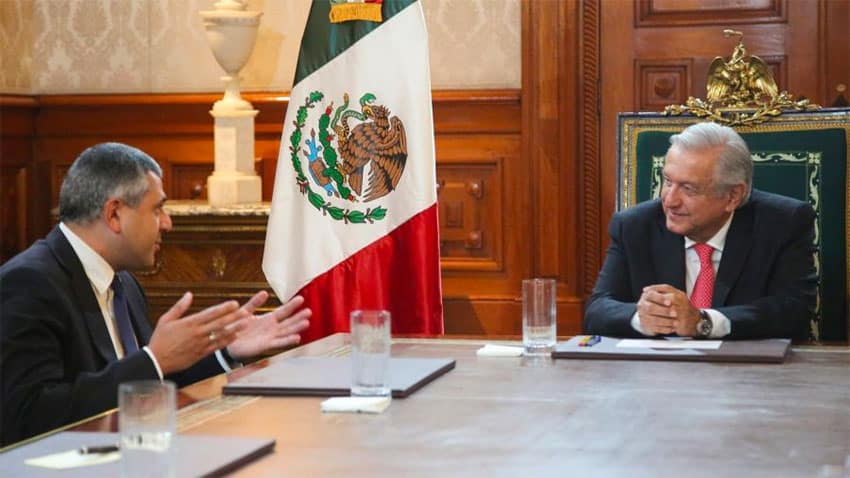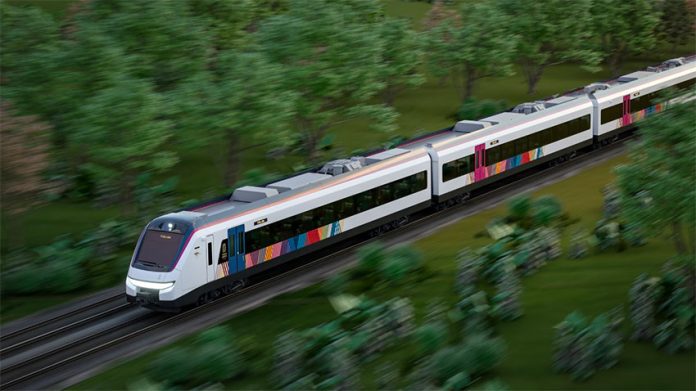The operation of the Maya Train, the federal government’s signature infrastructure project, will double or even triple visitor numbers to Mexico’s southeast, the secretary-general of the United Nations World Tourism Organization (UNWTO) predicted this week.
Zurab Pololikashvili, a former deputy foreign minister of Georgia, made the prediction after arriving in Yucatán on Wednesday to begin a multi-day tour of the region.
“Investing to facilitate the arrival of tourism to the southeast of Mexico will double or triple the flow of national and foreign visitors in the short term,” he told the news agency EFE, referring to the US $8-billion investment in the Maya Train railroad, which will run through Tabasco, Campeche, Yucatán, Quintana Roo and Chiapas.
“It’s a great project because it will connect the most important tourist destinations in the Yucatán Peninsula,” Pololikashvili said, referring to cities such as Cancún, Mérida and Valladolid and archaeological sites including Uxmal, Chichén Itzá and Palenque. “It will be very successful,” he added.
Construction of the 1,500-kilometer railroad is scheduled to finish in late 2022 and the first services are expected to start sometime in 2023.

A doubling or even tripling of tourists would bring millions of additional people to Mexico’s southeast. Yucatán, for example, received just over 3.2 million visitors in 2019 – a new record – before tourist numbers plummeted in 2020 due to the coronavirus pandemic.
Pololikashvili predicted that people will flock to Mexico’s southeast to travel on the Maya Train from anywhere it is promoted. Greater Mexico City, with some 25 million residents, could be a lucrative market for passengers, he said.
“… I believe that the government has taken a big step with this project, which is viable,” said Pololikashvili, who met with President López Obrador on Tuesday and thanked him for facilitating tourism by keeping Mexico’s borders open during the pandemic.
The UNWTO chief said that looking at ways in which development of rural and sustainable tourism in the Yucatán Peninsula can be boosted is a key objective of his visit. Some residents of rural Mayan communities have rejected the Maya Train, partially because they believe it will not bring any economic benefits to them.
But Pololikashvili suggested that there are ample opportunities to boost rural and sustainable tourism, which could bring jobs and much-needed revenue to areas outside large cities and towns.
Yucatán Tourism Minister Michelle Fridman Hirsch said that during the secretary-general’s visit authorities intend to enter into an agreement that will allow the Yucatán Tourism Advisory Council to become a formal member of the UNWTO.
Membership of the organization will bring a range a benefits that will have a “great impact for the region’s tourism community,” she said.
With reports from EFE
